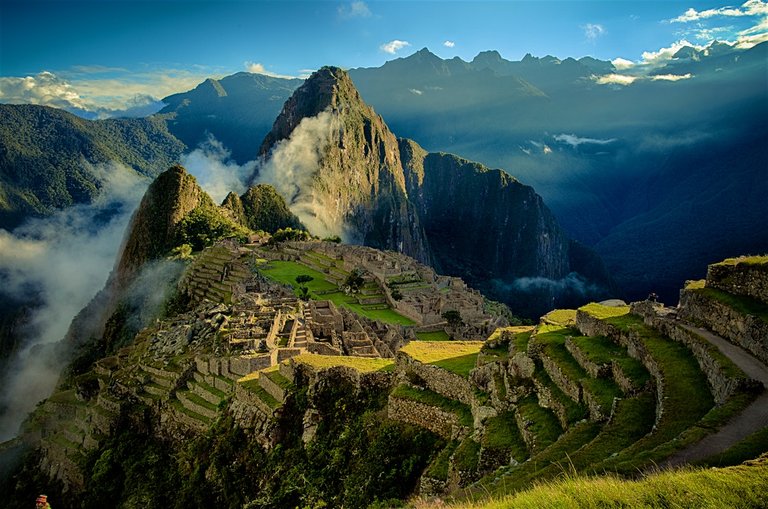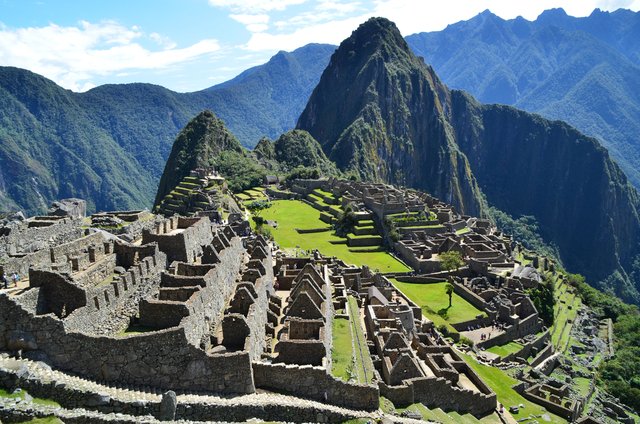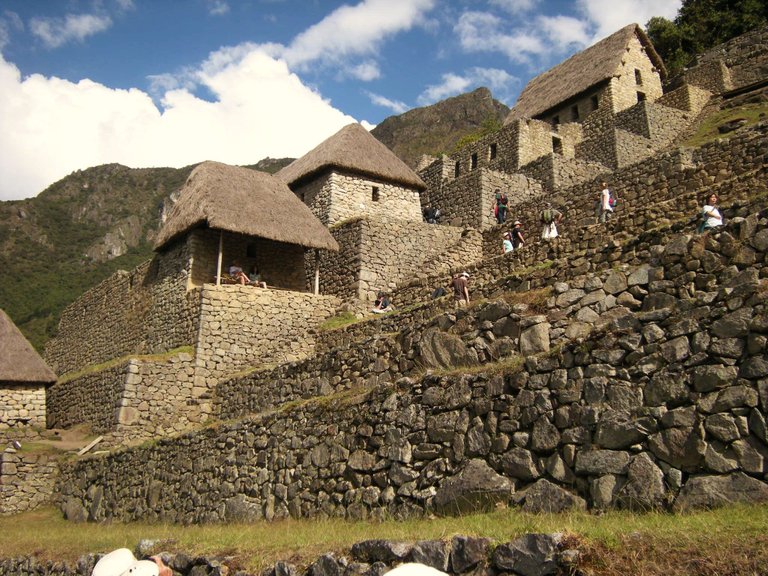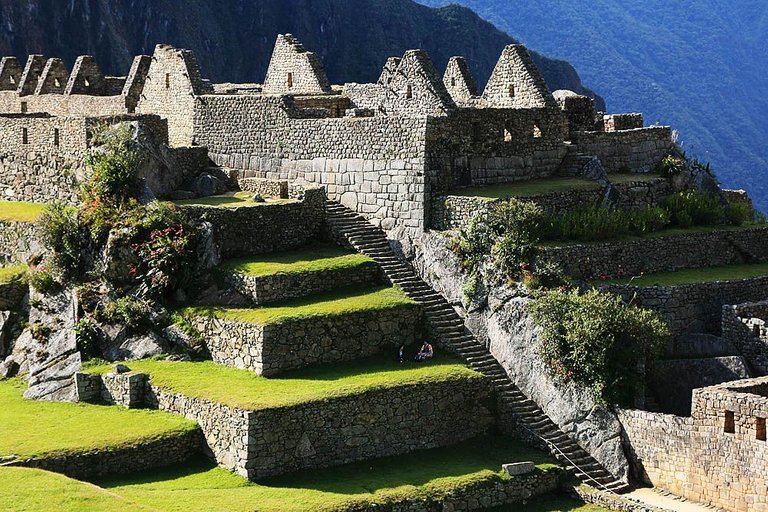At an altitude of 2.4 km above sea level (higher than the stratocumulus cloud layer), with an area of 32,500 hectares, stands a city on the top of the Andes mountains, in Peru: Machu Picchu. The town built in the 15th century disappeared for 400 years; before being rediscovered in 1911. Now he has been restored and crowned as one of the World Heritage City by UNESCO.
Machu Picchu, which means the Old Peak, is a city built by Pachacuti Inca Yupanqui, one of the greatest Inca rulers, in the mid-1400. Yupanqui is an empire builder. He conquered many lands, building roads through the mountains and setting up many cities scattered in the Andes. The city was abandoned, and vanished from historical records, some decades after the Inca empire fell into the hands of the Spanish invaders in 1572. Unintentionally, an explorer, Hiram Bingham III, who is also professor at Yale, discovered this city while searching for the ruins of the last capital of Inca, Vilcabamba. The splendor of a town perched on top of the mountain moved Bingham's heart and, upon his return from there, he wrote a book that made Machu Picchu the world's attention.
Experts estimate that Machu Picchu was built as a resting place for the King's family; who would surely come there with so many other nobles and all their servants and slaves. Although the city is very large, the location that seems to be reserved for ordinary citizens is not as large as that found in other Inca cities. This led experts to conclude that Machu Picchu was not used continuously; Sailors are only occasional. Nevertheless, the city has a special complex for the King, which is equipped with a garden, a private bathing and toilet pool. This is the only private toilet in town.
this king's personal royal complex is adjacent to the Temple of the Sun, the most important temple in the Inca faith system. The temple of the Sun is properly equipped: with sunspots positioning the sun, the sacrificial altar (including human sacrifice), a special room for ceremonies for Mother Earth and a space called La Casa de la Ñusta (The Kidney Chamber) is not yet known exactly for its usefulness.
Thus, the king will still be able to perform his duties as the Son of the Sun; even though he was in the middle of a cloud behind. Or quite the contrary: by climbing to the top of the mountain, the king can claim to have spoken directly to the Inti, the Inca Sun God.
The conclusion that Machu Picchu is a tetirah city is supported also by the fact that the city does not have adequate fortifications, like other Inca cities. Besides, there is no evidence that this location has ever been a battle - big or small. Nonetheless, the city is in a very strategic location, and its security is kept with the city's secret from the Inca community extensively.
Experts still can not take the exact conclusion of why the city was abandoned, or why the Inca royal family did not flee and flee to this secret city when the Spaniards conquered the Inca. This puzzle is further complicated by the fact that the city was built to last forever. The stone technique used in its construction is one of the culmination of Inca's building technology. There are over 125 large buildings in Machu Picchu, all built with black granite. These granite stones are cut very flat, then matched each other to lock each other. Thus, mortar or adhesive is no longer needed.
Machu Picchu is also built on the principle of a very modern development, even beyond the developers of the times kiwari: the city was built following the landscape, not destroy it. Thus, we find rooms carved into stone, even staircases carved into cliffs. Among these, the most remarkable is the plumbing system, which is completely carved into the rock. The plumbing system that had supplied water for the whole city, even its agricultural areas, is still functioning well to this day.
No one knows exactly why Machu Picchu was abandoned by his inhabitants. Nevertheless, this city survives in its solitude on the top of the Andes, waiting for humans to return to find it in almost complete state. And today, this city has been crowned as one of the New Seven Wonders of the World. The tourists flood the city endlessly throughout the year, and experts are still busy exploring the secrets of its development techniques.




